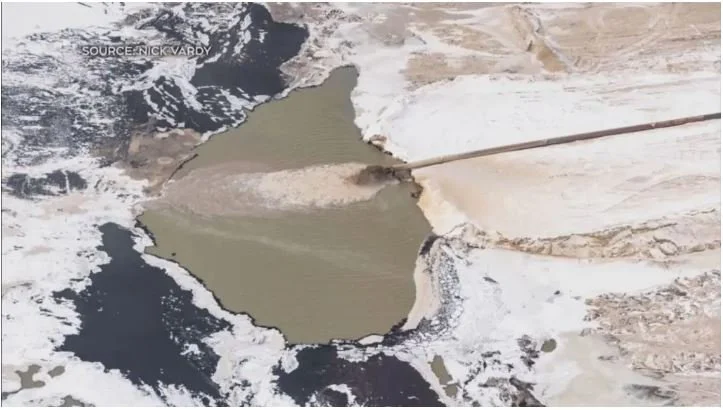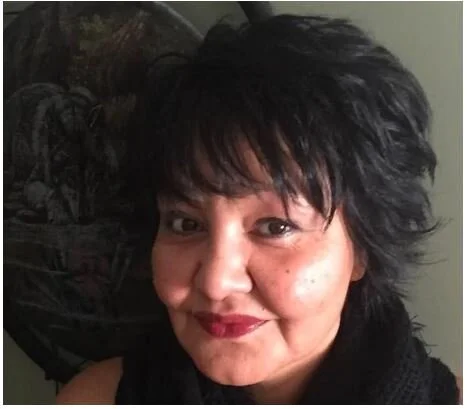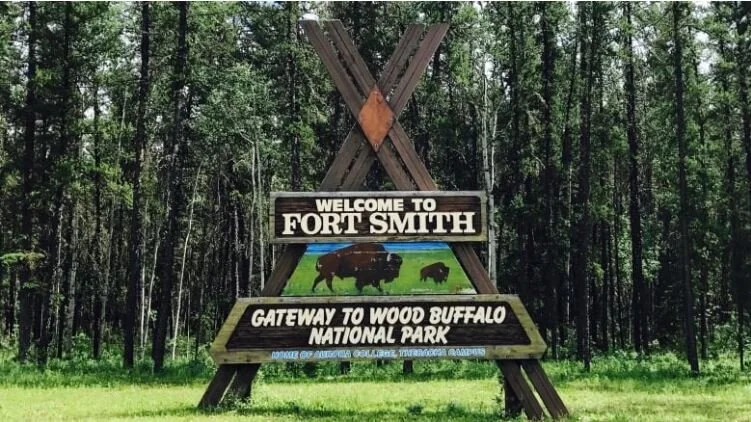The chief of the Athabasca Chipewyan First Nation is voicing his concern over yet another incident at the Kearl oilsands facility, located about a 90-minute drive north of Fort McMurray. In a statement issued Thursday, Chief Allan Adam said the Nov. 13 incident, involving water, has “once again impacted the environment on our traditional territories.”
Alberta Energy Regulator followed rules in Kearl mine wastewater release, report finds
A third-party report into the release of millions of litres of oilsands wastewater at Imperial Oil's Kearl mine has found the Alberta Energy Regulator followed its rules in keeping the public and area First Nations informed — but concludes those rules are significantly lacking. "There were no areas of non-adherence to stated policies and procedures," says the Deloitte report, prepared for the regulator's board.
What wildfires might mean for your NWT water supply
Experts say the NWT’s wildfire season could affect water sources by altering water quantity and quality, potentially straining treatment systems. The territory’s extreme 2023 wildfire season has already taken a heavy toll on residents and fouled air quality for months. But fires can affect water too – sometimes in substantial ways.Experts say the NWT’s wildfire season could affect water sources by altering water quantity and quality, potentially straining treatment systems. The territory’s extreme 2023 wildfire season has already taken a heavy toll on residents and fouled air quality for months. But fires can affect water too – sometimes in substantial ways.
Alberta floods: 10 years later
It’s been 10 years since the historic floods of southern Alberta that were deadly, expensive and resulted in the first ever declaration of a State of Provincial Emergency in Canadian history. Over 100,000 people were evacuated from their homes in communities throughout southern Alberta and five people lost their lives. There was more than $5 billion dollars in damages and 55,000 square kilometres of land was directly impacted by the floods; an area nearly 70 times the size of Calgary.
Province waited a month to declare emergency response to northern Alberta oilsands releases: document
The Alberta government waited a month before calling an emergency response to one of the biggest releases of oilsands tailings in the province's history, a leaked document shows. The document, obtained by The Canadian Press, shows the province didn't initiate an emergency response until after First Nations chiefs in the area went public about how they were informed of the releases from Imperial Oil's Kearl mine, about 70 kilometres north of Fort McMurray, Alta.
Feds to provide bottled water, mental health services to First Nations dealing with tailings pond leak
The federal government is providing bottled water and mental health services to First Nations struggling to deal with a spill from a tar sands tailings pond that went unreported for months in northern Alberta. “They’re devastated and their communities are devastated,” Indigenous Services Canada Minister Patty Hajdu said at a press conference in Ottawa on Monday. “They’re afraid that the water is contaminated.
Canada's oil sands sector aims to release treated tailings water into river
Canada's oil sands mining industry on Thursday outlined proposals to release treated water from tailings ponds into northern Alberta's Athabasca River, a move environmental groups say risks damaging one of the world's largest freshwater deltas. Unlike other extractive industries in Canada, oil sands firms are not allowed to release treated tailings water.
Calgary and Edmonton COVID-19 wastewater readings trending downward
The data from wastewater is considered a better indicator of how a city is doing at this point in the pandemic, particularly at a time when the province is rationing tests to high-risk groups and many people who have contracted COVID-19 are not showing up on provincial case totals. Wastewater testing measures COVID-19 levels across an entire city and officials can get a big picture perspective sooner than relying on just nasal testing.
Fort McMurray flood mitigation scheduled to be complete by 2023
Fort McMurray is more prepared for a flood than ever before, says a top official with the Regional Municipality of Wood Buffalo. All work on permanent flood mitigation is expected to be completed by 2023, Matthew Hough, the municipality's deputy chief administrative officer, told council Tuesday. "We are a more resilient community," Hough said, adding that he was struck by how much was accomplished this year.
Northern Alberta hamlet evacuating residents after water plant shut down
Leadership in a northern Alberta hamlet will be evacuating about 150 people after a chemical mix-up at the community's water plant. Vern Janvier, chief of the Prairie Chipewyan First Nation, said the First Nation decided on Monday to offer residents who rely on piped water the option of leaving their homes. There are 107 houses on the system, and Janvier said from one to six people live in each house. He anticipates there will be between 150 and 200 evacuees.
Smith's Landing First Nation asks N.W.T. to speak out against northern Alberta mine
The chief of Smith's Landing First Nation near Fort Smith, N.W.T, is calling on the territorial government to speak out against a northern Alberta mining project. "The government of the Northwest Territories is strangely silent … on the oil sands projects," Chief Gerry Cheezie said. Cheezie said that N.W.T. Premier Caroline Cochrane should be hosting meetings with Prime Minister Justin Trudeau and Alberta Premier Jason Kenney to make sure the Indigenous communities living within the Mackenzie water system will not be affected by the controversial $20.6 billion Teck Frontier mining project that is proposed for a site 110 kilometres north of Fort McMurray, Alta.
How liquid salt could be the answer to oilsands tailings ponds
Wastewater from oilsands mining operations have long been a challenge for Canada's energy industry, much of it ending up in industrial tailings ponds. But scientists and engineers at the University of Calgary are taking aim at eliminating watery tailings from the oilsands production process with the help of specialized liquid salt. Hot water is used in oilsands mining operations to extract the oily bitumen from the sand, with the resulting wastewater ending up in tailings ponds to settle and later be reused. Alberta has an estimated 1.3 trillion litres of fluid tailings sitting in tailings ponds.













